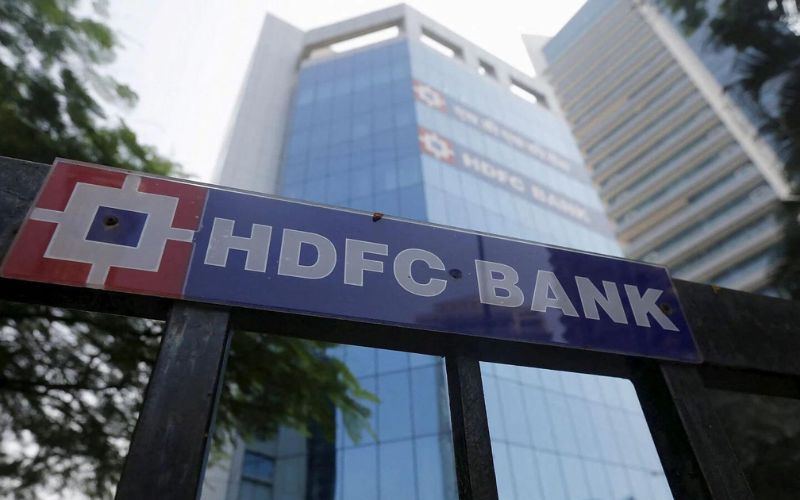HDFC Bank is one of the largest private sector banks in India, known for its strong financial performance, innovative banking solutions, and customer-centric approach. Established in 1994, the bank has grown to become a leading financial institution, catering to the diverse banking needs of individuals, businesses, and corporate clients across the country.
As a publicly traded company, HDFC Bank’s share price is closely watched by investors, analysts, and financial enthusiasts alike. The bank’s stock is listed on the Bombay Stock Exchange (BSE) and the National Stock Exchange (NSE), making it a popular investment option for both domestic and international investors.
Understanding Share Price
The share price of a company, including HDFC Bank, is determined by various factors, such as the company’s financial performance, market conditions, investor sentiment, and macroeconomic trends. The share price reflects the perceived value of the company and the market’s assessment of its future growth potential.
Share prices can fluctuate daily, weekly, or even monthly, based on the interplay of supply and demand in the stock market. Investors closely monitor these price movements to identify opportunities for potential gains or to manage their investment risks.
Factors Affecting HDFC Bank Share Price
Several factors can influence the share price of HDFC Bank, including:
- Financial Performance: The bank’s quarterly and annual financial results, such as net profit, asset quality, and loan growth, can significantly impact its share price.
- Macroeconomic Conditions: Factors like interest rates, inflation, GDP growth, and overall economic performance can affect the performance of the banking sector and, consequently, HDFC Bank’s share price.
- Regulatory Changes: Any changes in banking regulations or policies introduced by the Reserve Bank of India (RBI) can have a direct influence on HDFC Bank’s operations and, in turn, its share price.
- Competitive Landscape: The performance and strategies of other leading banks in the industry can also affect HDFC Bank’s market position and share price.
- Investor Sentiment: Investor perceptions, market trends, and overall market sentiment can drive the demand for HDFC Bank’s shares, leading to fluctuations in the share price.
- Technological Advancements: HDFC Bank’s ability to adapt to and capitalize on technological developments in the banking sector can impact its competitive edge and share price.
Historical Performance of HDFC Bank Share Price
HDFC Bank’s share price has witnessed a remarkable journey since its initial public offering (IPO) in 1995. The bank’s stock has consistently outperformed the broader market, delivering impressive returns to its shareholders over the years.
To illustrate the historical performance of HDFC Bank’s share price, let’s consider the following data:
| Year | Share Price (INR) |
|---|---|
| 1995 | 83.50 |
| 2000 | 235.00 |
| 2005 | 725.00 |
| 2010 | 2,150.00 |
| 2015 | 1,050.00 |
| 2020 | 1,350.00 |
| 2022 | 1,600.00 |
As you can see, HDFC Bank’s share price has experienced significant growth over the past two decades, reflecting the bank’s strong financial performance and market leadership.
Analyzing HDFC Bank Share Price Trends
To gain a deeper understanding of HDFC Bank’s share price trends, it’s essential to analyze the historical price movements, identify patterns, and understand the underlying factors driving these changes.
One way to analyze HDFC Bank’s share price trends is by using technical analysis tools, such as moving averages, support and resistance levels, and chart patterns. These tools can help you identify potential support and resistance levels, as well as spot emerging trends and potential buying or selling opportunities.
Additionally, fundamental analysis, which focuses on the company’s financial performance, industry dynamics, and macroeconomic factors, can provide valuable insights into the long-term potential of HDFC Bank’s share price.
Factors to Consider When Investing in HDFC Bank Shares
When considering an investment in HDFC Bank shares, there are several factors you should take into account:
- Financial Strength: Analyze the bank’s financial statements, including its profitability, asset quality, capital adequacy, and liquidity ratios, to assess its overall financial health.
- Growth Potential: Evaluate the bank’s growth strategies, market share, and competitive positioning within the industry to gauge its future growth prospects.
- Valuation: Determine the appropriate valuation of HDFC Bank’s shares by using various valuation metrics, such as price-to-earnings (P/E) ratio, price-to-book (P/B) ratio, and dividend yield.
- Dividend History: Consider the bank’s dividend payout history and its potential for future dividend growth, as this can contribute to your overall investment returns.
- Risk Tolerance: Assess your risk tolerance and investment objectives to determine whether HDFC Bank’s shares align with your investment strategy.
- Diversification: Ensure that your investment in HDFC Bank shares is part of a well-diversified portfolio to manage your overall investment risks.
Tips for Investing in HDFC Bank Shares
Here are some tips to consider when investing in HDFC Bank shares:
- Conduct Thorough Research: Thoroughly research the bank’s financial performance, growth strategies, and industry dynamics to make an informed investment decision.
- Diversify Your Portfolio: Avoid investing a significant portion of your portfolio in a single stock, even if it’s a blue-chip like HDFC Bank. Diversify your investments to manage your overall risk exposure.
- Invest for the Long-Term: HDFC Bank’s share price has historically shown strong long-term growth. Consider investing for the long-term to benefit from the bank’s potential future growth.
- Monitor Market Trends: Regularly monitor market trends, industry developments, and regulatory changes that may impact HDFC Bank’s share price.
- Utilize Stop-Loss Orders: Consider using stop-loss orders to limit your downside risk in case of unexpected market fluctuations.
- Reinvest Dividends: If you receive dividends from your HDFC Bank shares, consider reinvesting them to take advantage of the power of compounding.
Resources for Tracking HDFC Bank Share Price
There are several resources available to help you track the latest HDFC Bank share price and stay informed about the bank’s performance:
- Financial Websites: Websites like BSE, NSE, and various financial news portals provide real-time and historical HDFC Bank share price data, as well as news and analysis related to the bank.
- Mobile Apps: Download financial apps like CNBC, Moneycontrol, or Tradejini to access HDFC Bank’s share price and other market updates on-the-go.
- Brokerage Platforms: If you have a demat and trading account, your brokerage platform will provide comprehensive HDFC Bank share price information, along with various analytical tools and research reports.
- Financial Newspapers and Magazines: Publications like The Economic Times, Business Standard, and Forbes India often feature in-depth coverage and analysis of HDFC Bank’s performance and share price movements.
- Investor Relations: Visit HDFC Bank’s investor relations website to access the latest financial reports, investor presentations, and other relevant information about the bank.
Risks and Challenges in Investing in HDFC Bank Shares
While HDFC Bank is considered a blue-chip stock and a relatively stable investment option, there are still some risks and challenges to be aware of:
- Market Volatility: The stock market, in general, can be volatile, and HDFC Bank’s share price may experience significant fluctuations in the short term, which can impact your investment returns.
- Regulatory Changes: Changes in banking regulations or policies introduced by the RBI can affect HDFC Bank’s operations and, consequently, its share price.
- Competition: The increasing competition in the banking sector, both from other private banks and new digital players, can impact HDFC Bank’s market share and growth prospects.
- Asset Quality Concerns: Any deterioration in HDFC Bank’s asset quality, such as an increase in non-performing assets, can negatively affect its financial performance and share price.
- Macroeconomic Factors: Broader economic conditions, such as interest rate movements, inflation, and GDP growth, can have a significant impact on the banking sector and HDFC Bank’s share price.
To mitigate these risks, it’s essential to diversify your investment portfolio, monitor market trends, and conduct regular research and analysis on HDFC Bank’s performance and the broader banking industry.
To stay up-to-date with the latest HDFC Bank share price and investment insights, subscribe to our newsletter. You’ll receive timely updates, market analysis, and expert recommendations to help you make informed investment decisions.
Conclusion
HDFC Bank’s share price has been a subject of keen interest for investors, given the bank’s strong financial performance, market leadership, and growth potential. By understanding the factors that influence HDFC Bank’s share price, analyzing historical trends, and considering the risks and challenges, you can make more informed investment decisions.
Remember to conduct thorough research, diversify your portfolio, and monitor market developments to navigate the dynamic stock market and potentially benefit from the long-term growth of HDFC Bank’s shares.





